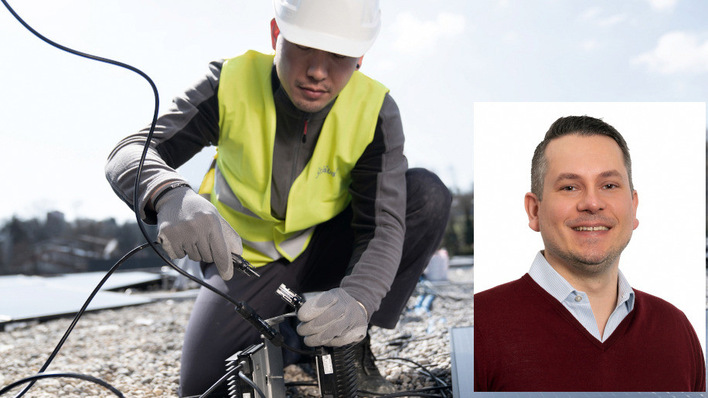The factory has a production area of approximately 17,000 square metres. Combining the photovoltaic-thermal (PVT) modules with geothermal probes and a ground-source heat pump is a cost-effective way of meeting the heating demand. The supply of clean electricity is also ensured.
To generate the annual heating demand via PVT modules, part of the roof area is sufficient. The remaining area is covered with solar modules to meet the electricity demand. In total, around 2,700 tonnes of carbon dioxide are saved annually.
Exemplary solar projects for investors can be found here.
No more fuel costs
After installation, there are no more fuel costs, and the maintenance effort is also manageable. This keeps heating costs low for the entire lifetime of the system. "We see the significant increase in energy costs. At the same time, we have to work economically," comments Joachim Wulff, plant manager in Vaihingen-Enz. "Being independent of fossil energy markets is an absolute advantage for us. At the same time, we are making an important contribution to true climate neutrality."
The smarter E Europe: Meet our experts!
Mahle supplies the heat exchangers
Mahle supplies the key component of the PVT modules: the heat exchanger that harnesses the waste heat from the solar modules. "The PVT modules from Sunmaxx made it possible to reduce the number of ground probes required," says Markus Pröll, authorised signatory of the planning office Goodmen Energy. "The earth probes serve as a seasonal storage unit that absorbs the solar heat from the PVT modules in summer and releases it for heating purposes in winter."
See also: These are the finalists for the Intersolar Award 2023
The project is currently in the implementation planning stage. Test drillings for the geothermal probes have already been carried out. The plant in Vaihingen an der Enz is scheduled to go into operation in 2024. In parallel, a team from Sunmaxx PVT and Mahle is already working on decarbonising other plants. (HS/mfo)








